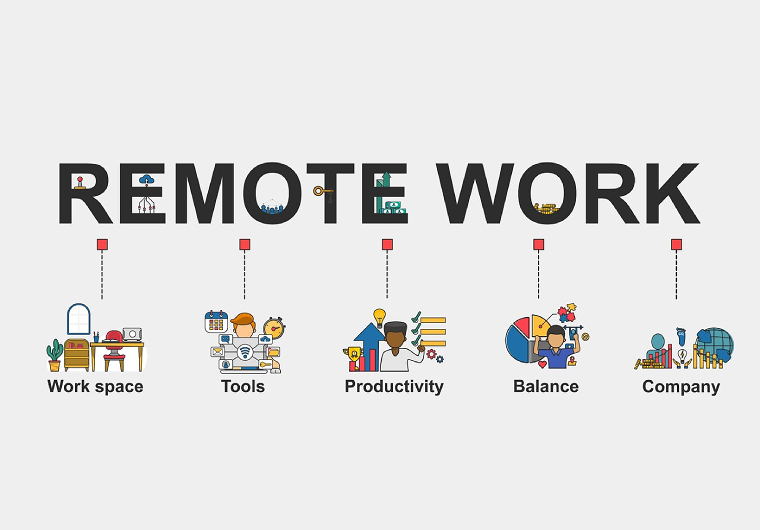Remote Workforce Requires:
Effectively managing a remote workforce requires a thoughtful approach to communication, collaboration, and support. First, establish clear communication channels such as email, instant messaging platforms, and video conferencing tools to facilitate regular interactions. Set clear expectations and goals, ensuring remote employees understand their responsibilities and deadlines. Regular check-in meetings provide feedback, progress updates, and opportunities to address challenges.
Encourage collaboration and team-building through virtual activities and shared projects, fostering a sense of connection among remote team members. Provide remote employees with the resources, tools, and support they need to perform their roles effectively. Promote work-life balance by respecting boundaries and encouraging breaks and downtime.
Building trust and autonomy is important. Empower remote employees to manage their time and workload independently. Trusting employees to deliver results increases a sense of ownership and accountability.
Successful management of remote employees requires proactive communication, support, and trust-building measures to ensure productivity, collaboration, and employee satisfaction.
Remote work has revolutionized the traditional office model, offering many benefits for productivity.
Check out the Similar articles
Remote work allows employees to create flexible schedules that suit their needs, improving work-life balance. Without the need to travel, employees save valuable time and energy, so they can start their workday refreshed and focused. This reduction in travel also contributes to reduced stress levels, which can have a positive impact on productivity and overall well-being.
Remote work eliminates many of the distractions typically found in traditional office settings. Employees can create personal work environments conducive to concentration, resulting in increased focus and efficiency during working hours. With fewer distractions, remote workers can dive deeper into tasks and complete them more efficiently.
Access to a global talent pool is another benefit of remote work. Companies can hire the best candidates regardless of their geographic location, creating more diverse and efficient teams. This access to talent promotes innovation and creativity in organizations, thereby increasing productivity and competitiveness in the marketplace.
Remote Work Productivity:
Technology plays a vital role in facilitating remote work productivity. Using collaboration tools, project management software, and communication platforms, remote teams can seamlessly collaborate on projects, share ideas, and track progress in real time. These technological advancements streamline workflows and enhance communication, leading to more efficient and productive work processes.
Remote work encourages employees to take ownership of their tasks and manage their time effectively. With greater autonomy, individuals can prioritize their workload and focus on high-impact projects, increasing productivity and achieving better results.
Remote Work Technology:
Remote work technology facilitates seamless collaboration and communication between distributed teams. Tools like video conferencing platforms, project management software, and cloud storage enable remote workers to collaborate in real time, securely share documents, and hold virtual meetings. Instant messaging applications facilitate fast communication, while VPN ensures secure access to company resources.
Additionally, remote work technologies include virtual whiteboards, screen sharing, and time-tracking software, which increase productivity and transparency. Adopting these technologies empowers remote teams to work efficiently, regardless of their physical location.
Feel free to give your feedbacks and suggestions in the comments section.
Follow RemoteOS for updates on interesting articles!
Keep exploring and innovating!!




Leave a Reply